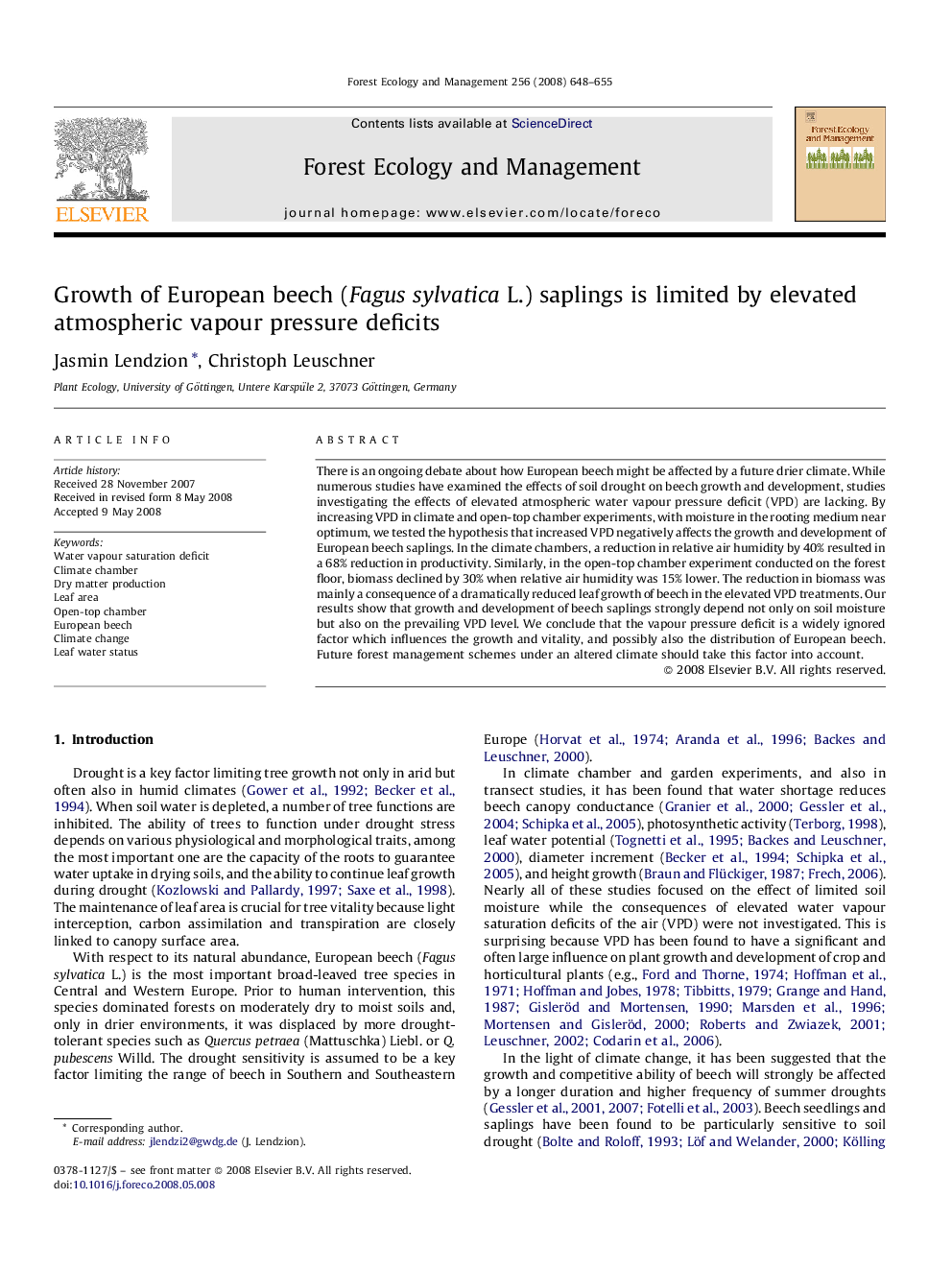| Article ID | Journal | Published Year | Pages | File Type |
|---|---|---|---|---|
| 89643 | Forest Ecology and Management | 2008 | 8 Pages |
There is an ongoing debate about how European beech might be affected by a future drier climate. While numerous studies have examined the effects of soil drought on beech growth and development, studies investigating the effects of elevated atmospheric water vapour pressure deficit (VPD) are lacking. By increasing VPD in climate and open-top chamber experiments, with moisture in the rooting medium near optimum, we tested the hypothesis that increased VPD negatively affects the growth and development of European beech saplings. In the climate chambers, a reduction in relative air humidity by 40% resulted in a 68% reduction in productivity. Similarly, in the open-top chamber experiment conducted on the forest floor, biomass declined by 30% when relative air humidity was 15% lower. The reduction in biomass was mainly a consequence of a dramatically reduced leaf growth of beech in the elevated VPD treatments. Our results show that growth and development of beech saplings strongly depend not only on soil moisture but also on the prevailing VPD level. We conclude that the vapour pressure deficit is a widely ignored factor which influences the growth and vitality, and possibly also the distribution of European beech. Future forest management schemes under an altered climate should take this factor into account.
